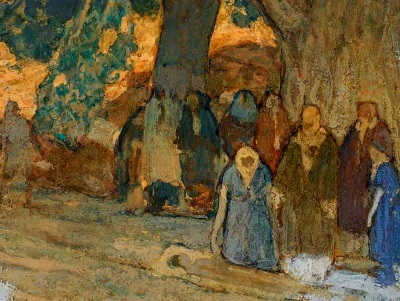Jesus experienced the utmost humiliation, which led Him very much lower than He had been at His birth in the feed-trough, in the manger. When Jesus was hung on the cross and crucified, the high official, that proud representative of the whole Roman Empire, said, shortly before this overpowering humiliation, “Behold, a man!” Behold the man! Jesus, the man! He who reveals God as a man, this is the one whom we seek. He who reveals God as love, this is the human being with whom we want to have communion.
- Eberhard Arnold
Selected Reading
Who Is My Mother? Who Are My Brothers?
Eberhard Arnold
We find Jesus' mother, who had previously seemed to separate herself from him, waiting with all the others for the outpouring of the Holy Spirit and for the creation of the first communal church at Pentecost. From then on she belonged fully to the circle of those who believed in her Son.
Continue ReadingQuick Quotes
The message of the Gospel is resurrection from death. The Spirit of the risen Christ wants to kindle new fire, so as to establish life community anew, with the watchword, “Light the candles! The Lord is truly risen!”
- Eberhard Arnold
The message of the first disciples of Jesus was the resurrection of the Messiah Jesus and the kingdom of God which breaks into the world at His second coming. The Prince of death has learned, too late for himself, that the resurrection of Jesus from the dead has decisively broken the power of death.
- Eberhard Arnold




